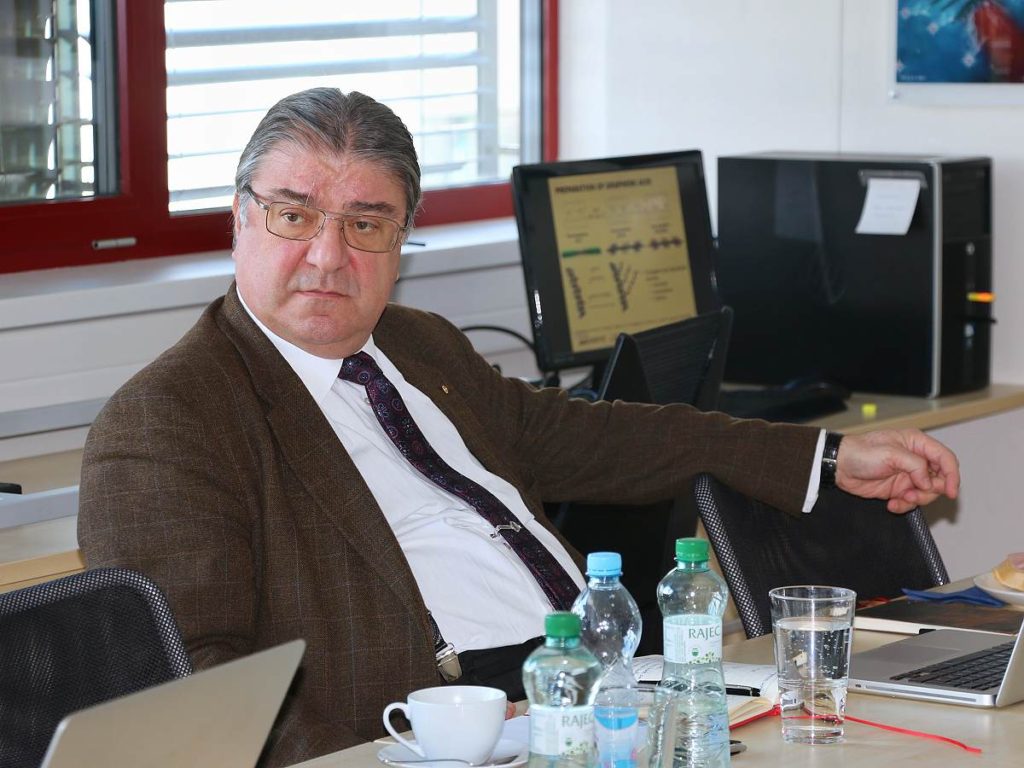Successful collaboration continues, with new directions to take
The agreement to continue the current successful collaboration, particularly in the field of the use of graphene derivatives in nanobioelectrocathalysis, was the result of the meeting taking place last Friday between RCPTM representatives and the leading physical and material chemist Niyazi Serdar Sariciftci from Johann Kepler University, Linz, Austria. New possibilities for future collaboration were opened up after meeting Professor Ayse Turak from McMaster University, Canada.
Professor Sariciftci’s research has led to many significant scientific results in photoinduced, optical and magnetic resonance imaging, and descriptions of phenomena in semiconductors and metal polymers. He is the inventor of solar cells working on the principle of conjugated heterotransition between polymers and fulerens. These discoveries triggered the research in the new field of polymer photodetectors and organic solar cells. Prof. Sariciftci is currently engaged in a wide range of other topics, such as electrochemical carbon dioxide reduction and bio- organic electronics, also collaborating with RCPTM.
As for our next partnership, we have a lot to follow up on. For example, in a recent joint publication, https://pubs.acs.org/doi/10.1021/acsami.9b17777, we showed how graphene acid improves enzyme electrocatalysis by reducing carbon dioxide to methanol. However, we would like to improve the conductivity of nanobiocatalyst-modified electrodes that we have developed at RCPTM and increase the conversion efficiency. We are continuing to find ways to effectively convert waste and greenhouse gas into methanol, which can serve as a raw material or fuel, “said RCPTM Deputy Director Michal Otyepka.

Further, the meeting attended by both RCPTM staff and doctoral students also resulted in proposing new guidelines for collaboration. “Professor Sariciftci and I also want to carry out research into the biocompatibility and toxicity of nanomanerials. We would like to set up a project and receive a grant to support this collaboration. A whole new possibility of co-operation was then opened up after a meeting with Professor Turak, particularly in the area of composite nanomaterials,” added the Deputy Director.
The meeting was described as very inspiring by a doctoral student Veronika Šedajová. “We were able introduce the guests to our research in a very friendly atmosphere, and received constructive feedback. They helped us look at our work from a different perspective. The subsequent brainstorming, the offer of cooperation and the overall discussion was a great experience for me. I’m so glad that I was able to attend the meeting,” said Veronika.
Professor Sariciftci has visited RCPTM many times before. Two years ago, for instance, he also lectured as part of the Rudolf Zahradník Lecture Series.


